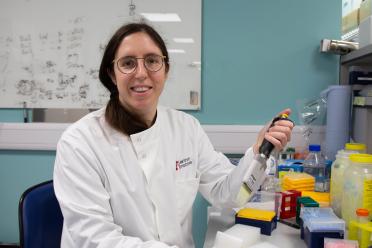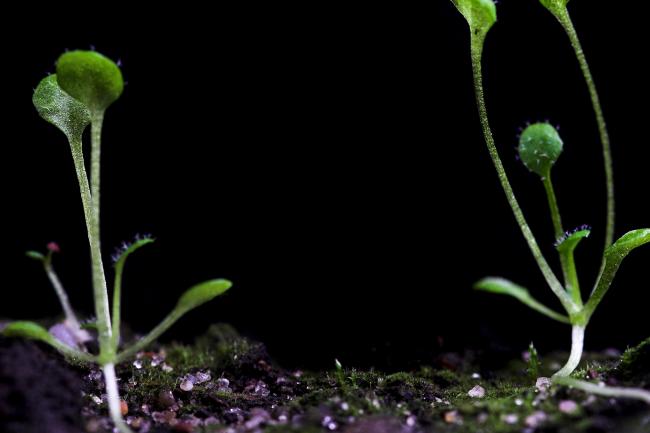
She is among 68 new recipients who have collectively been awarded £104m, and will now go on to form her own research group at the Institute.
UKRI’s flagship Future Leaders Fellowships allow universities and businesses to develop their most talented early career researchers and innovators and to attract new people to their organisations, including from overseas.
Dr Guiziou said: “I want to acknowledge the support of numerous mentors who believed in me and supported me in the development of my career, independence, and confidence.
“This fellowship now gives me the opportunity to support, lead, and mentor people from diverse backgrounds and promote a positive research culture - from supporting a healthy work-life balance to championing inclusivity, diversity, equality, and accessibility.”
During her 4-year Fellowship, Dr Guiziou will be working to improve the tolerance of plants to climate change - including recurrent drought - by engineering plant roots and their associated microbiomes.
These microbial communities support the growth and resilience of plants - particularly during challenging conditions, where the microbiome can help source specific nutrients from the soil or even protect against pathogens.
By applying her expertise in synthetic biology approaches, Dr Guiziou hopes to guide the development of root networks to significantly improve nutrient and water uptake in plants.
“Because it’s hidden from view, we have a tendency to undervalue the relationship between the roots and the microbes in the soil. But their dynamics influence nutrient and water uptake, which is critical to the health and efficiency of the plant.
“My research has the potential to provide new, long-term solutions for sustainable agriculture in the face of a changing climate. Advances in integrase-based technologies will also benefit the wider bioscience research community, as they’re easily transferable to other research questions and organisms.”
UKRI Chief Executive, Professor Dame Ottoline Leyser, said: “UKRI’s Future Leaders Fellowships provide researchers and innovators with long-term support and training to develop ambitious, transformative ideas.
“The programme supports the research and innovation leaders of the future to transcend disciplinary and sector boundaries, bridging the gap between academia and business.
“The fellows announced today demonstrate how these awards continue to drive excellence, and to shorten the distance from discovery to prosperity and public good.”
Dr Guiziou earned her PhD in synthetic biology at the University of Montpellier. She followed this with work on plant synthetic biology as an EMBO Postdoctoral Fellow at the University of Washington, developing integrase tools to record gene expression during plant development. She joined the Earlham Institute in April 2023.
The Fellowships are open to people working in all research and innovation areas supported by UKRI.
Other successful projects in the latest round include the development of aluminium-ion batteries, explorations into the lived experience of criminal justice systems, and research into the links between democratic stability, economic inequality, and political polarisation.
